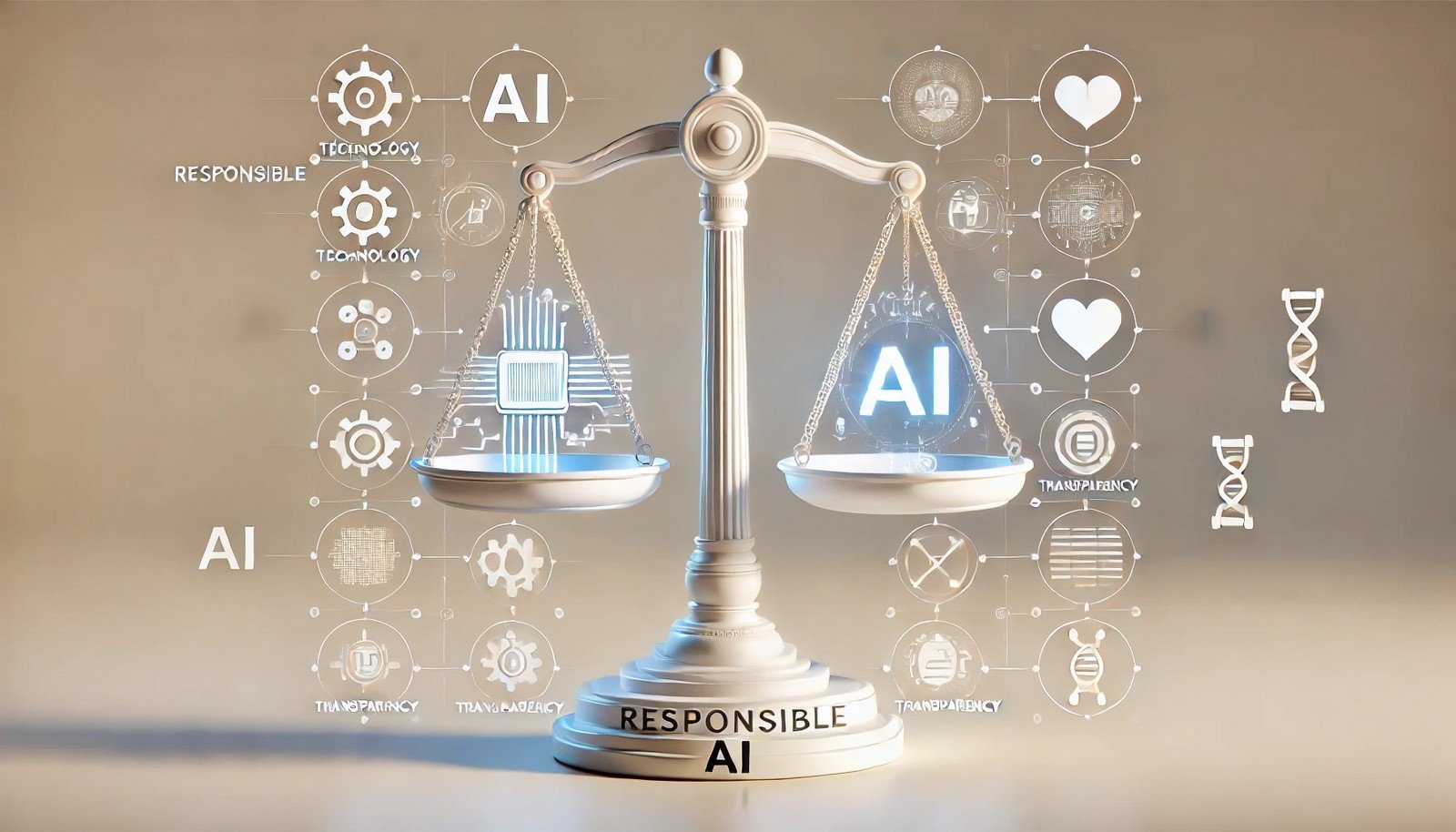Responsible AI

Quick Navigation:
- Responsible AI Definition
- Responsible AI Explained Easy
- Responsible AI Origin
- Responsible AI Etymology
- Responsible AI Usage Trends
- Responsible AI Usage
- Responsible AI Examples in Context
- Responsible AI FAQ
- Responsible AI Related Words
Responsible AI Definition
Responsible AI refers to the practice of designing, developing, and deploying AI systems that prioritize ethical, transparent, and fair practices to protect human rights and societal well-being. It ensures that AI systems are accountable, unbiased, and adhere to legal standards, especially in critical sectors like healthcare, finance, and law enforcement.
Responsible AI Explained Easy
Imagine building a robot that only does good things, never hurts anyone, and always follows fair rules. Responsible AI is about creating such “robots” (or AI systems) that follow rules to be safe and fair for everyone, like a superhero following a code of honor.
Responsible AI Origin
Responsible AI has emerged as a response to growing concerns over privacy, bias, and accountability in AI systems. With AI's rapid integration into everyday life, stakeholders advocate for frameworks to protect society and prevent unintended consequences.
Responsible AI Etymology
The term derives from the emphasis on "responsibility," highlighting the ethical duties of AI creators and users to ensure systems contribute positively to society.
Responsible AI Usage Trends
With the rise in AI applications across industries, Responsible AI has become a priority, especially in government policies and corporate standards. There is a push for AI systems to be explainable and fair, with regulatory bodies demanding transparency in decision-making processes.
Responsible AI Usage
- Formal/Technical Tagging:
- Ethical AI
- AI Governance
- Transparency in AI - Typical Collocations:
- "ethical AI deployment"
- "AI accountability"
- "Responsible AI practices"
- "bias-free AI models"
Responsible AI Examples in Context
- Organizations use Responsible AI principles to ensure AI algorithms in hiring are fair and unbiased.
- Responsible AI in healthcare aims to eliminate biases in diagnostic tools, ensuring equal treatment across demographics.
- Financial institutions are adopting Responsible AI frameworks to avoid discrimination in credit scoring.
Responsible AI FAQ
- What is Responsible AI?
Responsible AI ensures that AI systems are fair, transparent, and protect human rights. - Why is Responsible AI important?
It promotes fairness, prevents misuse, and safeguards societal values. - How is Responsible AI implemented?
Through guidelines that require fairness, accountability, and transparency in AI development. - What are the main challenges in Responsible AI?
Ensuring unbiased algorithms and defining universal ethical standards. - How does Responsible AI affect businesses?
It builds trust, mitigates risk, and aligns with legal standards, which benefits the brand. - What sectors benefit most from Responsible AI?
Critical sectors like finance, healthcare, and law, where decisions impact people’s lives. - Is Responsible AI legally required?
Some regions mandate AI accountability, while global regulations are evolving. - Can Responsible AI be applied to all AI systems?
While ideal, applying Responsible AI to every system is complex and sometimes limited by technology. - What are some examples of Responsible AI practices?
Developing bias-free algorithms, transparent decision-making, and protecting user data. - What are the consequences of ignoring Responsible AI?
Ignoring it can lead to biased outcomes, loss of trust, and legal consequences.
Responsible AI Related Words
- Categories/Topics:
- AI Ethics
- Machine Learning Fairness
- Algorithmic Transparency
Did you know?
In recent years, tech companies have faced backlash for AI systems with biased results, sparking a global movement for Responsible AI. Microsoft, Google, and others have established ethics boards to guide AI towards positive societal impact.
PicDictionary.com is an online dictionary in pictures. If you have questions or suggestions, please reach out to us on WhatsApp or Twitter.Authors | Arjun Vishnu | @ArjunAndVishnu

I am Vishnu. I like AI, Linux, Single Board Computers, and Cloud Computing. I create the web & video content, and I also write for popular websites.
My younger brother, Arjun handles image & video editing. Together, we run a YouTube Channel that's focused on reviewing gadgets and explaining technology.



Comments powered by CComment